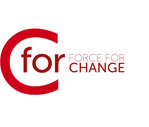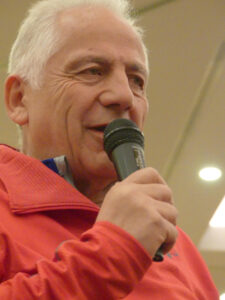Intensive on Group Facilitation and Community Building Flyer
London, 5th to 10th October 2014
Facilitated by Arlene Audergon Ph.D and Jean-Claude Audergon MSc
This intensive course is co-sponsored by CFOR and RSPOPUK.
Six-Day Autumn Intensive
The essence of this intensive course is the relationship between your personal awareness and your contribution to community.
The course provides training in facilitation skills and conflict resolution for personal, organisational and community development and social movements.
Mornings include inner work, presentations, demonstrations, large group process, debrief and analysis. Afternoons include small group facilitation practice, large group (fishbowl) case studies, discussion and formulation of questions and learning.
It is a chance to grasp the relationship between inner work and collective change, as well as practice facilitation skills in the kind of environment in which you can stretch your knowledge and skills, and learn, while also having some fun within a dynamic learning community.
If you have questions in order to know if this training would be useful to you, please ask us on seminars@processwork-audergon.com
We will focus on:
– The interplay between one’s personal and spiritual development, and your contribution to community development, social movements and collective change.
– Inner Work practice for facilitators
– Awareness practice in 3 dimensions: Perception of content; underlying role polarisations and ghosts; sensing the underlying field or deepest part of yourself that can hold the different positions.
– Second Training facilitation and meta-skills, coming from, or siding with the underlying field and whole interaction. Recognise that the outer situation is also inside you.
– Facilitation and conflict resolution skills including:
- Preparation for Facilitation, including learning about content, history, issues; discovering the roles and ghost roles before you arrive; contacting the deepest part of yourself.
- Contacting and learning about the issue you will meet from a range of people with the organisation or community
- Sort and group the different themes.
- Recognise or build consensus to focus on an issue
- Invite all voices and points of view
- Facilitate awareness of diversity and its complexity in relation to one another in respect to gender, sexual orientation, ethnicity and race, religion, economy, nation, language, health, disability and more,
- Facilitate awareness of dynamics of power, privilege and rank
- Facilitate awareness of our personal and collective history, and dynamics of trauma, justice and accountability within our interactions
- Step into each side of a polarised situation, to support it to be fully expressed and included
- Perceive and work with ‘hot spots’
- Perceive and represent ‘ghosts’, and the least represented part of a process
- Recognise escalation and de-escalation signals, and facilitate these
- Perceive and anchor shifts of understanding, feeling, contact between parties and community
- Facilitate at different levels of interaction, (large group, subgroup, relationship, individual)
- Practice feeling, perceiving and welcoming the shared field underlying our polarisations and diversity.
Concepts and process theory
- Field theory / systems theory / feedback loops and complexity
- Hot-spots as points of inflammation, and points of transformation, doorways from history to future
- How system dynamics manifest and repeat at intra-psychic, relational, team, sub-group, organisational and community levels
- Dynamics of violent conflict, recovery and violence prevention
- International and community issues of migration and refuge
- Recognising community dynamics around power, identity, nationalism, diversity, multicultural citizenship and relationships in society
Arts, Creativity and Community
The facilitation team including RSPOPUK Faculty will support in-depth individual and small group learning and practice throughout the Intensive, in small group as well as large group formats.
Arlene and Jean Claude Audergon are conflict facilitators, psychotherapists, and co-founders of CFOR and Process Work UK.
CFOR has strong experience and expertise working in multicultural and transnational contexts, facilitating conflict and supporting individuals and communities to access the creativity within us as a society. CFOR believes in our capacity to make a difference in this world, recognizing the profound connection between personal awareness and collective change. CFOR’s programmes include: ‘Europe Matters’ focusing on human rights and transforming our violent history in Europe into a creative multicultural future; ‘Beyond Conflict’, post-conflict violence prevention and community building; Facilitation for Leaders’ Annual Training Programme, and ‘Seeds’. www.cfor.info
RSPOPUK / Processwork UK offers public seminars and events, a Foundation Year, and an accredited Psychotherapy Training Programme through UKCP. Process Oriented Psychology (Process Work) is applied to personal psychotherapy, dream and body work, conflict resolution, creativity and the arts, mental health, the environment, organisational development and worldwork. www.rspopuk.uk

